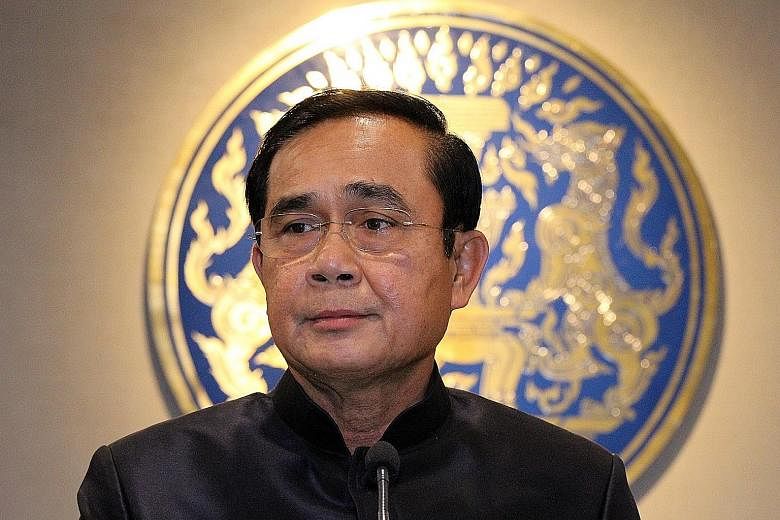Thai premier Prayut Chan-o-cha pleaded for understanding yesterday as his government rolled out a multibillion-baht support scheme for rice farmers hit by plummeting prices, amid fears that they may turn restive.
"I know that farmers are suffering but my government is doing its best," he said.
His ousted predecessor Yingluck Shinawatra, facing a 35.7 billion baht (S$1.41 billion) fine over her own administration's rice subsidy policy, has pointed out the similarities between the two schemes.
"The military government's latest rice measures are no different from (my government's) rice pledging policy," she told reporters in Bangkok yesterday outside a court where she is being tried for criminal negligence over her scheme.
For over two years before it was ousted in 2014, Ms Yingluck's government bought rice directly from farmers at some 50 per cent over market prices, stockpiling tonnes of grain it later had trouble selling.
The current military government has issued an administrative order demanding she pay 35.7 billion baht back to the state, failing which her assets would be seized. She has yet to appeal against the order.
Thailand's ruling generals, who initially vowed to steer clear of what it called populist policies, have lately been spurred to action by falling prices of the grain. The country is the world's second-largest rice exporter, behind India.
Prices of the top grade of Thai jasmine rice fell from US$1,166.75 per tonne two years ago to US$770 last week, according to the Thai Rice Exporters Association.
Global stocks are abundant. According to the Food and Agriculture Organisation's latest rice report last month, world paddy production is expected to reach a record 749.7 million tonnes this year.
But the Thai government has blamed rice millers and local politicians for manipulating rice prices in the hope of growing influence for elections expected late next year. In response, board members of the Thai Rice Millers Association stepped down, though its president denied the allegation.
General Prayut said yesterday: "I'm not forcing anyone to do anything or destroying the rice business, but if we keep doing things the old-fashioned way, we will keep facing the same problems."
His government earlier this week signed off on extra funds of about 20 billion baht to help jasmine rice farmers in the north and north-east - constituents who form the bulk of supporters for Yingluck's Puea Thai party, which won overwhelmingly in the 2011 elections.
The current rice scheme gives soft loans to farmers by using rice as collateral, in the hope that the delay in sales would allow prices to recover. But it makes farmers store the grain in their own barns.
The government has been wary of the prospect of farmers taking to the streets, which has occurred before when prices of agricultural commodities like rubber plunged. Interior Ministry permanent secretary Grisada Boonrach was quoted in the Bangkok Post as saying: "There must be no demonstrations by farmers to pressure state agencies."
Meanwhile, soldiers have been deployed to harvest rice while the army has promised to buy rice directly from farmers cooperatives.
Yingluck is expected to turn up at a Bangkok shopping mall today to help promote rice sold directly by farmers. While she is banned from politics until 2020 by virtue of a retrospective impeachment, she remains the most visible and arguably popular icon of the Puea Thai party.

